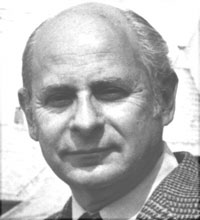Christmas and Hanukkah 70 Years Ago
By Sam Blumenfeld
Printed in Practical Homeschooling #101, 2011.
 Sam Blumenfeld remembers how Christmas and Hanukkah were celebrated back in the 1940s
Sam Blumenfeld remembers how Christmas and Hanukkah were celebrated back in the 1940s

|
 |

Since
America is only 235 years old—starting with the signing of the Declaration of
Independence—our nation was only 165 years old in 1941. At that time Europe
was involved in another of its destructive wars with Germany invading Poland,
Belgium, Holland and France. But we were protected from such insanity by the
Atlantic Ocean.
Seventy years ago the celebration of Christmas was not a controversial
activity in the public square or in school. First of all, preparations for
Christmas were not made in October or November, but well into December. Two
weeks were all that was needed to get Christmas gifts. There were no big-box
stores crammed to the rafters with every conceivable kind of electronic toys
for kids. Local toy stores carried a small variety of dolls, trucks, and
trains, none of which were activated by mini-computers. I-Pods, laptops, and
DVDs were unheard of. Also, in those days department stores had toy
departments.
Since we were still in the Depression, Christmas was not the kind of
extravaganza it is today. During the Depression we had deflation, not
inflation. You could get a bulky roll or a candy bar for a penny, a hot dog or
a cup of coffee for five cents, a quart of milk for seven cents.
Everything was much simpler in those days. Christmas cards were simple and
direct with no sophisticated poems or voice capsules. Christmas was often
spelled X-Mas. Why, I don’t know. Christmas ornaments were made in the USA or
Japan. We believed that our basic traditions would last forever. No one
objected to Christmas carols being sung in school or elsewhere. Santa Claus
enchanted children in the department stores. On New York’s Fifth Avenue, the
great stores had wonderful Christmas window displays. Shopping malls were
still in the distant future.
The development of the great American shopping mall has changed the way
religious holidays are now celebrated. In fact, the commercialization of these
holidays has become an important part of our retail economy. So even though
the culture has become more secular, the commercial value of religious
holidays has made them more extravagant than ever.
As for Hanukkah, in 1941 it was celebrated at home or in synagogues. In those
days, many of the Jewish immigrants to America still adhered to the religious
practices of the “old country.” It took the next two generations of
American-born Jews to begin popularizing the celebration of Hanukkah, so that
today many, if not most, non-Jews are familiar with it. The lighting of
candles is always a very lovely symbolic event which just about everyone can
appreciate and enjoy.
Back in 1941, there was no attempt to join both holidays as we do today. So,
in a way, today’s Americans are more open-minded about celebrating both
holidays at roughly the same time of year. But, ironically, today the public
schools ban both these religious holidays from their sacred secular halls.
Though there was no homeschool movement in 1941, the principal in my school
read the 23rd Psalm at our assemblies. Children were taught to read with
phonics, write in cursive, and learned the arithmetic facts by rote
memorization. So dyslexia was unheard of, and there was no such thing as
“attention deficit disorder.” The teacher stood at the head of the class,
taught everybody the same thing as we all sat at desks bolted to the floor,
and everyone’s attention was focused on her. Or else! So you weren’t
allowed
to have “attention deficit” disorder.
Of course, we can’t go back to the way things were, nor should we want to.
With the invention of the home computer and cell-phones, and the development
of the homeschool movement, the possibilities of improvement in our lives are
multiplying daily as never before. The potential for a more glorious future
for America is staring us in the face. If only we can get some sane people in
Washington to share our belief in freedom, free enterprise, and the basic
American way of life.
In the total scheme of things, we are still a very young nation. Yet today in
Washington and our public schools our basic beliefs and policies seem to be
changing daily. Our traditions, which should last centuries, are being
undermined by those who no longer believe in the basic principles that formed
the spiritual and philosophical foundation of our nation.
The tremendous advances in technology should have brought us greater
prosperity and not the present economic doldrums and trillion dollar debts.
Back in 1941, nobody would have believed in a trillion of anything, let alone
a national debt. But a radical change in government philosophy can be as
destructive as a war.
That is why it is so important to remember the way things were in the past,
not only to appreciate what our parents and grandparents went through, but to
recognize the enormous potential this country has to become even greater than
it has ever been.
It is hoped that homeschoolers, who believe in educational freedom, will help
our country find its way back to sane and rational governance.